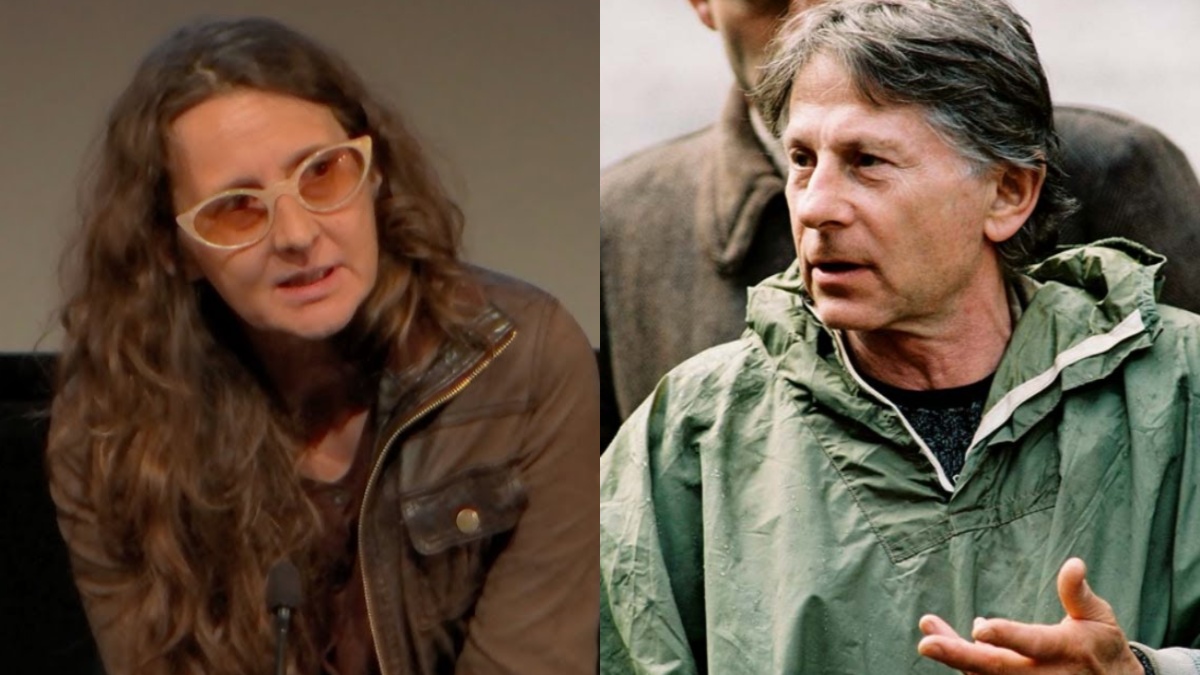UPDATE: Martel released an official statement to clarify her comments. You can read the entire statement at the bottom of the original article.
Ever since the official lineup was announced weeks ago, the big discussion surrounding this year’s Venice Film Festival is more to do with just a few of the films selected for the official competition. Namely, the new project from filmmaker Roman Polanski, and the only two films (out of more than 20) to be directed by females. Basically, Venice has provided a prime situation to not only discuss the #MeToo movement but also gender inequality in the film industry. Unfortunately, that leads to some uncomfortable debates in front of the world.
And at a recent Venice panel (via Deadline), that’s exactly what happened. The discussion began with a question about the fact that Polanski’s latest film, “An Officer and a Spy,” was selected for the competition, considering the fact that he’s a convicted rapist that has fled from jail time and has been living in Europe for decades.
READ MORE: 2019 Venice Film Festival Preview: 15 Must-See Movies
Venice director Alberto Barbera fell back on his typical defense of Polanski and reiterated that art has to be considered separate from the artist, “The history of art is full of artists who committed crimes of a different nature, nevertheless, we have continued to admire their works of art. The same is true for Polanski who is, in my opinion, one of the last masters still active in European cinema.”
This led to Venice competition jury president Lucrecia Martel, who is one of the rare female filmmakers to have success at multiple film festivals including Cannes, Berlin, and Sundance, replying to this assertion and letting everyone know her complicated feelings on the matter.
“I don’t separate the man from the art. I think that important aspects of the work emerges in the man,” Martel said. “A man who commits a crime of this size who is then condemned, and the victim considers herself satisfied with the compensation is difficult for me judge… It is difficult to define what is the right approach we have to take with people who have committed certain acts and were judged for them. I think these questions are part of the debate in our times.”
That being said, the jury president is quick to let everyone know that she’s not going to be able to play completely nice with Polanski during the prestigious event.
“I will not congratulate him, but I think it is correct that his movie is here at this festival, we have to develop our dialogue with him and this is the best possible place to go on with this type of discussion,” said the filmmaker.
The Polanski discussion at this year’s Venice is magnified by the fact that the festival has a distinct disparity amongst male and female filmmakers in compeition. The fact that the controversial director was chosen to compete in the almost-two dozen films is under the microscope more so because there are only two women in the group that is heavily dominated by men.
Martel isn’t oblivious to this discussion and while she says gender quotes are “never satisfactory,” the filmmaker understands that, for now at least, it’s just what has to happen.
“Quotas are pertinent for the time being,” Martel said. “Do I like them? No. But I don’t think I know of any other system that would force this industry to think differently and take into consideration films directed by women.”
Barbera then refuted that claim, saying that the real prejudice is at the film school or financing realm, and if you force quotas on a festival, the quality of the event will suffer. This was followed by Martel’s rebuttal, “What if we were in a situation when we had to have 50/50, are you sure we wouldn’t have the quality?”
“If I found 50% of films directed by women, I would have done so without quotas. I have tried,” responded Barbera.
Clearly, this is a discussion that will continue on and isn’t going to be solved in Venice. But as you can see, Martel is a filmmaker that is happy to openly talk about the disparity and bring it into the public eye at a high level.
UPDATE: Martel released a new statement to clarify her above comments:
“According to some reports after today’s press conference, I believe my words were deeply misunderstood.
Since I don’t separate the work from the author and I have recognized a lot of humanity in Polanski’s previous films, I am not opposed to the presence of the film in competition.
I don’t have any prejudice towards it and of course I will watch the film like any other in the competition.
If I had any prejudice, I would have resigned my duty as the president of the jury.”





